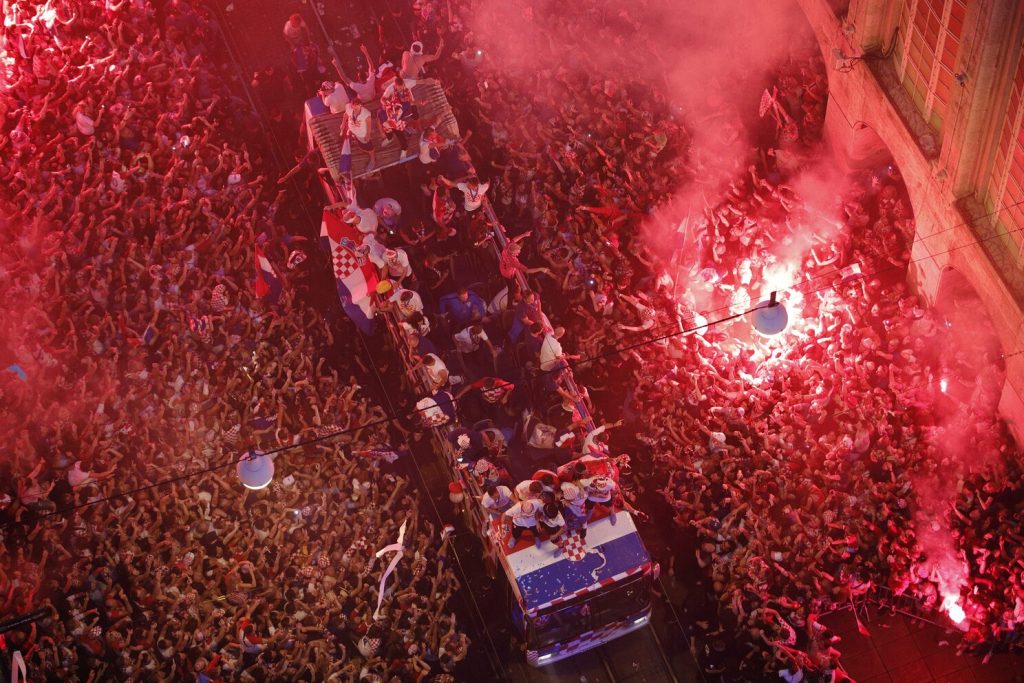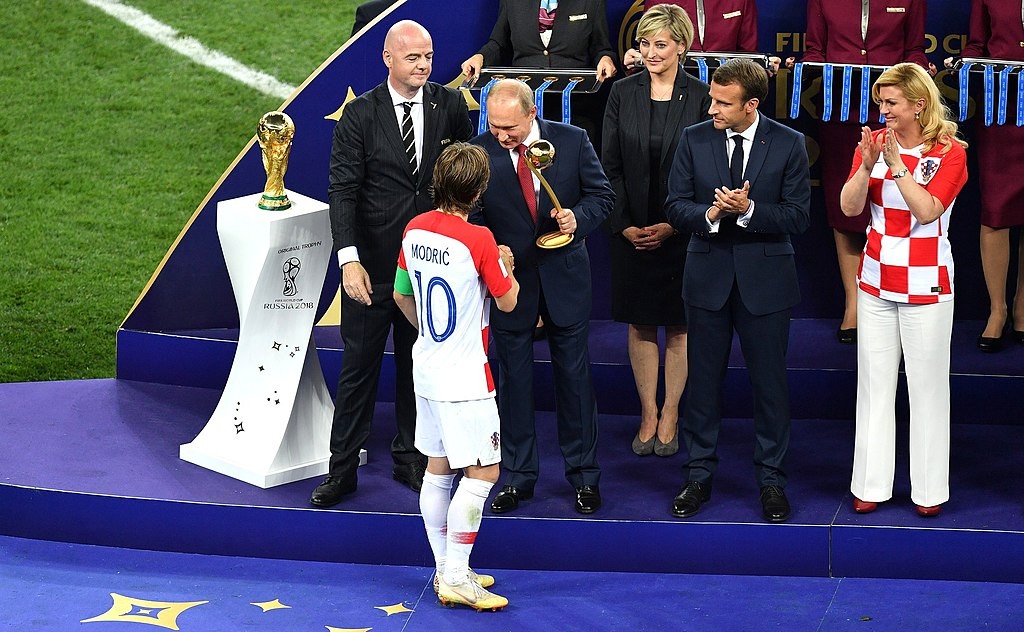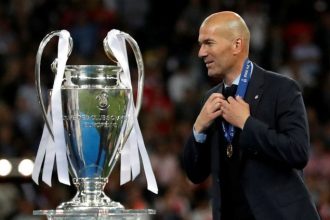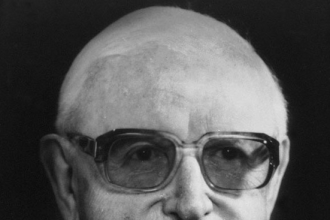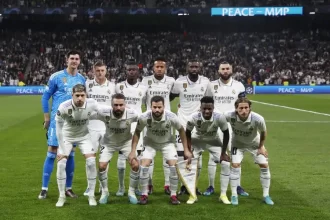The 2018 FIFA World Cup was the 21st FIFA World Cup, the quadrennial world championship for national football teams organized by FIFA. It took place in Russia from 14 June to 15 July 2018, after the country was awarded the hosting rights in 2010. It was the eleventh time the championships had been held in Europe and the first time they were held in Eastern Europe. At an estimated cost of over $14.2 billion, it was the most expensive World Cup ever held until it was surpassed by the 2022 World Cup in Qatar.
The 22-member FIFA Executive Committee convened in Zürich on 2 December 2010 to vote to select the hosts of both tournaments. Russia won the right to be the 2018 host in the second round of voting. The Portugal/Spain bid came second, and that from Belgium/Netherlands third. England, which was bidding to host its second tournament, was eliminated in the first round.

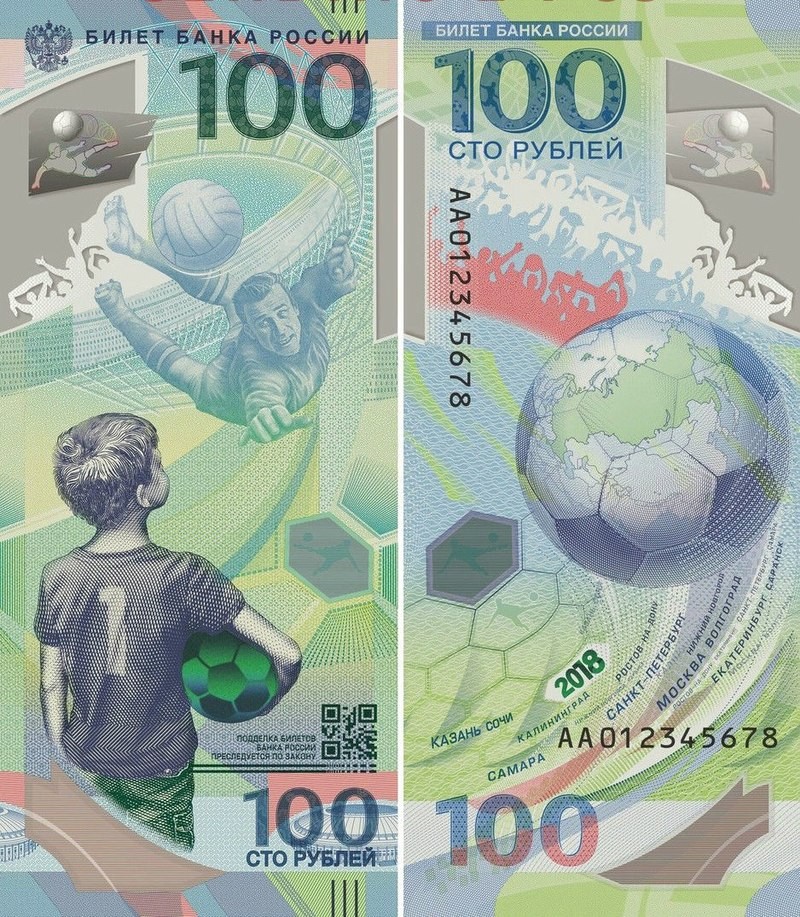
Teams:
Australia, Iran, Japan, Saudi Arabia, South Korea, Egypt, Morocco, Nigeria, Senegal, Tunisia, Costa Rica, Mexico, Panama, Argentina, Brazil, Colombia, Peru, Uruguay, Belgium, Croatia, Denmark, England, France, Germany, Iceland, Poland, Portugal, Russia(hosts), Serbia, Spain, Sweden, Switzerland.
The draw was held on 1 December 2017 at 18:00 MSK at the State Kremlin Palace in Moscow. The 32 teams were drawn into eight groups of four, by selecting one team from each of the four ranked pots.
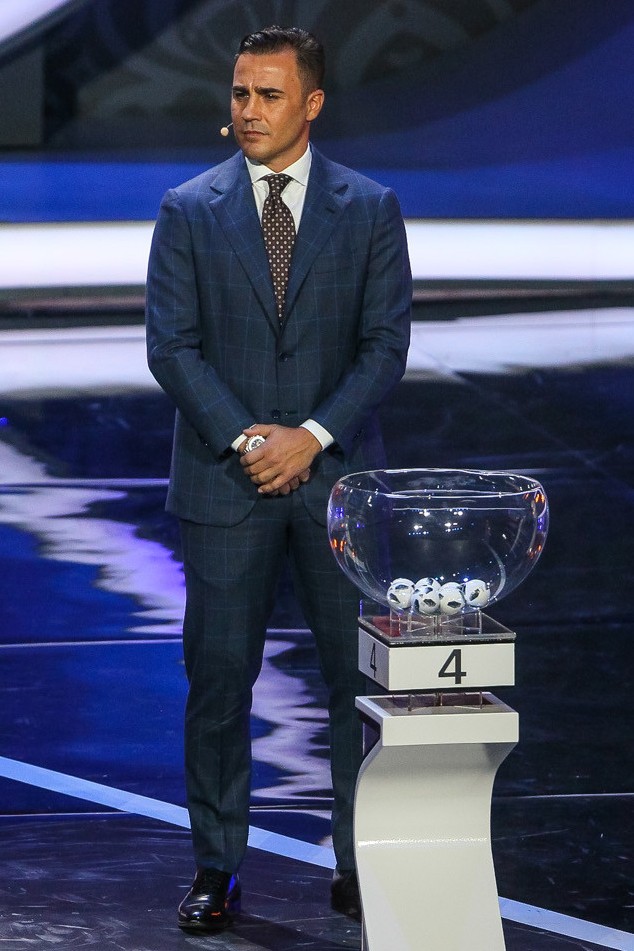
Shortly after the International Football Association Board’s decision to incorporate video assistant referees (VARs) into the Laws of the game (LOTG) on 16 March 2018, the FIFA Council took the much-anticipated step of approving the use of VAR for the first time in a FIFA World Cup tournament.

Russia proposed the following host cities: Kaliningrad, Kazan, Krasnodar, Moscow, Nizhny Novgorod, Rostov-on-Don, Saint Petersburg, Samara, Saransk, Sochi, Volgograd, Yaroslavl, and Yekaterinburg. Each chosen city was located in European Russia (except Yekaterinburg, which lies very close to the Europe-Asia border) in order to reduce travel time for the teams in the huge country. The bid evaluation report stated: “The Russian bid proposes 13 host cities and 16 stadiums, thus exceeding FIFA’s minimum requirement. Three of the 16 stadiums would be renovated, and 13 would be newly constructed.
At an estimated cost of over $14.2 billion as of June 2018,[114] the 2018 FIFA event was the most expensive World Cup in history, surpassing the $11.6 billion cost of the 2014 FIFA World Cup in Brazil.


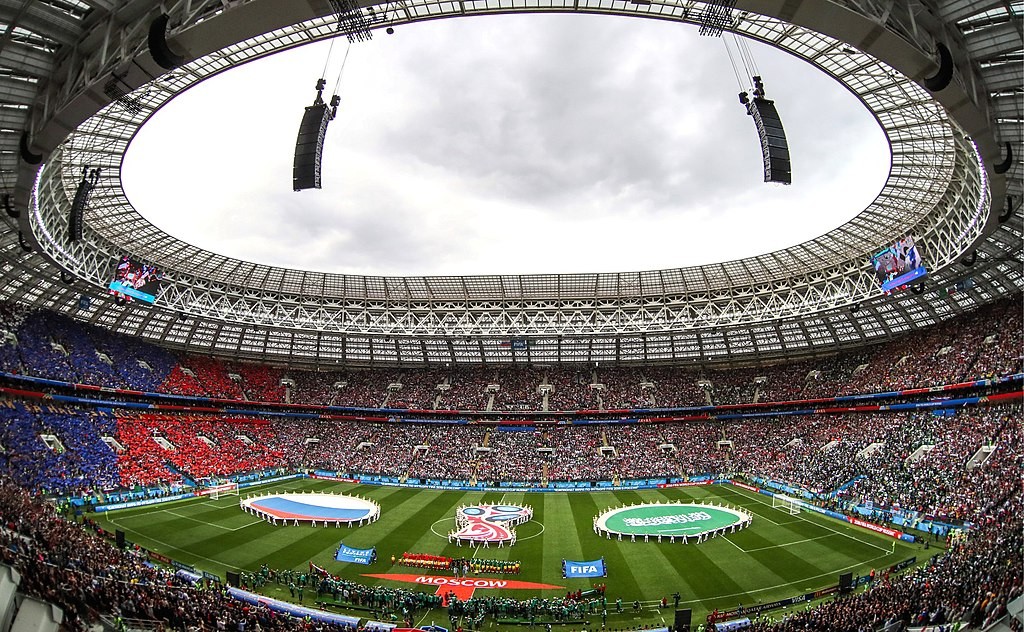
Mascot
The tournament’s official mascot was unveiled on 21 October 2016 and selected through a design competition among university students. A public vote was used to select the mascot from three finalists—a cat, a tiger, and a wolf. The winner, with 53% or approximately 1 million votes, was Zabivaka—an anthropomorphic wolf dressed in the colors of the Russian national team. Zabivaka’s name is a portmanteau of the Russian words забияка (“hothead”) and забивать (“to score”), and his official backstory states that he is an aspiring football player who is “charming, confident and social”.

Match Ball
The official match ball, the “Telstar 18”, was unveiled on 9 November 2017. It was based on the name and design of the first Adidas World Cup ball from 1970. A special red-colored variation, “Telstar Mechta”, was used for the knockout stage of the tournament. The word mechta (Russian: мечта) means “dream” or “ambition”.
Goalkeepers noted that the ball was slippery and prone to having unpredictable trajectories. In addition, two Telstar 18 balls popped in the midst of a first-round match between France and Australia, leading to further discussions over the ball’s performance.
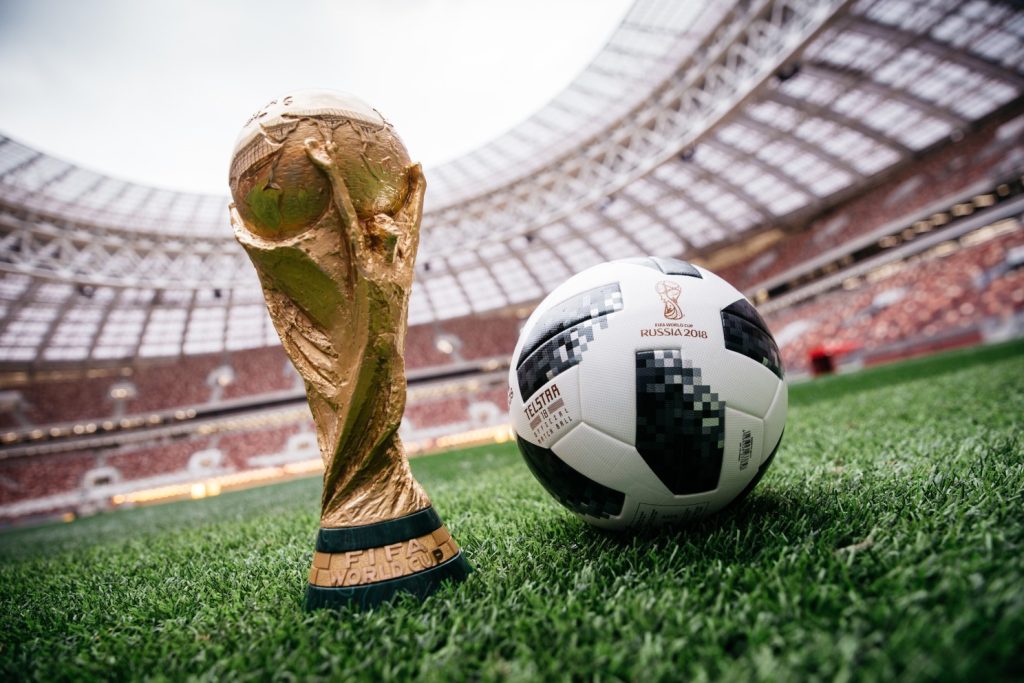
Music
The official song of the tournament was “Live It Up”, with vocals by Will Smith, Nicky Jam, and Era Istrefi, released on 25 May 2018. Its music video was released on 8 June 2018.
Volunteer applications to the 2018 Russia Local Organising Committee opened on 1 June 2016. The 2018 FIFA World Cup Russia Volunteer Program received about 177,000 applications and engaged a total of 35,000 volunteers. They received training at 15 Volunteer Centres of the local organizing committee based in 15 universities and in volunteer centers in the host cities. Preference, especially in key areas, was given to those with knowledge of a foreign language and volunteering experience, but not necessarily to Russian nationals.
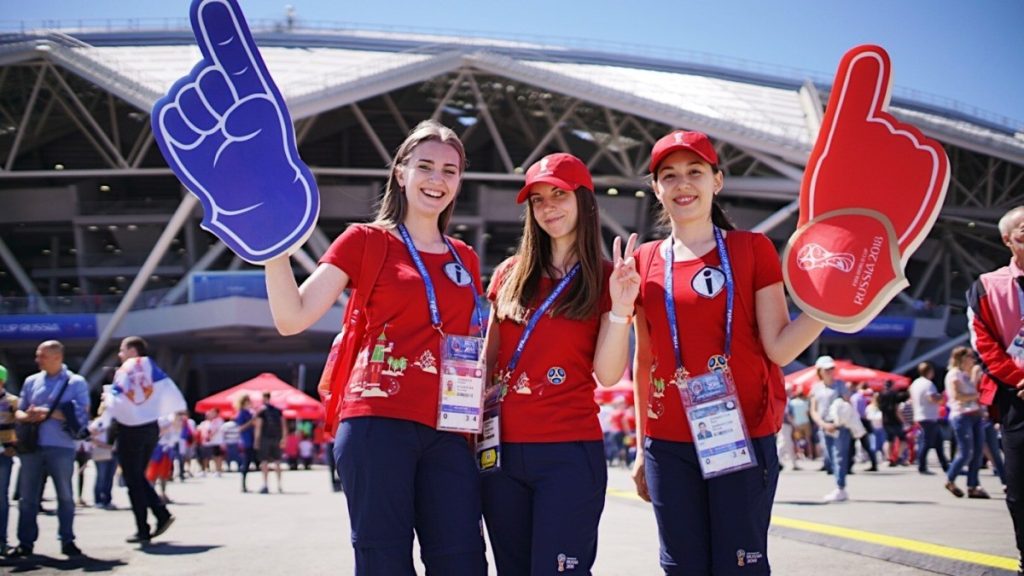
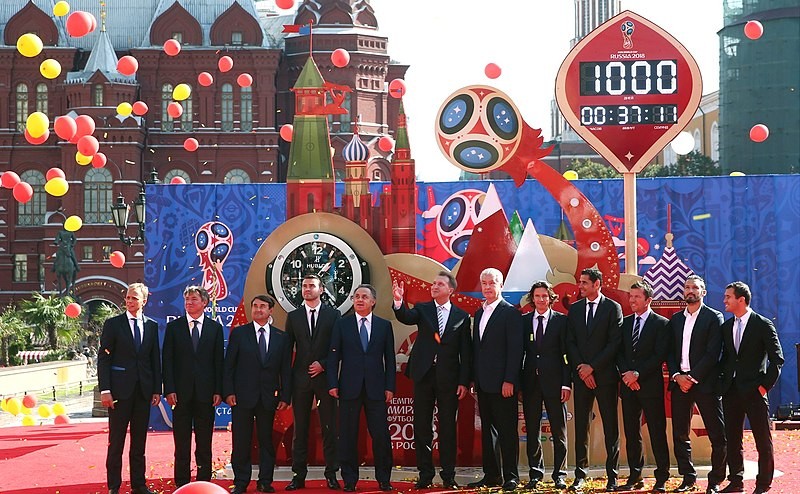
The FIFA Fan Fest™ captivated the Russian public as the biggest ever football party and the numbers are here to prove it. After the exhilarating final of the 2018 FIFA World Cup Russia™, which saw France take the title, FIFA announced that the Russian edition of the FIFA Fan Fest™ welcomed 7.7 million visitors in 11 venues across Russia.
Locations:
Moscow (Sparrow Hills – Moscow State University), St. Petersburg (Konyushennaya Square), Kazan (Kazan Family Center), Sochi (Sochi Seaport Area), Volgograd (62 Armii Embankment),
Nizhny Novgorod (Minina i Pozharskogo Square), Rostov on Don (Teatralnaya Square), Kaliningrad (Central Square), Yekaterinburg (Mayakovsky Central Park of Entertainment and Culture), Samara (Kuybyshev Square), Saransk (Sovetskaya Square)
FIFA Fan Fest™ 2018 in Numbers:
- 11 FIFA Fan Fest™ venues
- 7.7 million people visited the FIFA Fan Fest™ during the tournament
- 304 operating days in total across all 11 venues
- 924 hours of live football broadcasted
- 1,700 m2 of high-definition screens across all venues
- 646 live music performances playing 323 hours of live music
- Around 6,287 media representatives reported from the FIFA Fan Fest(fifa.com)
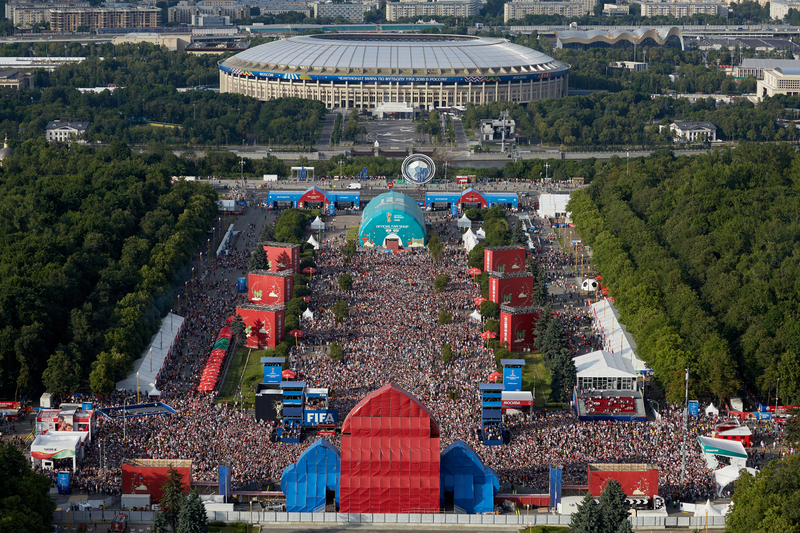
Opening Ceremony
The opening ceremony took place on Thursday, 14 June 2018, at the Luzhniki Stadium in Moscow, preceding the opening match of the tournament between hosts Russia and Saudi Arabia.
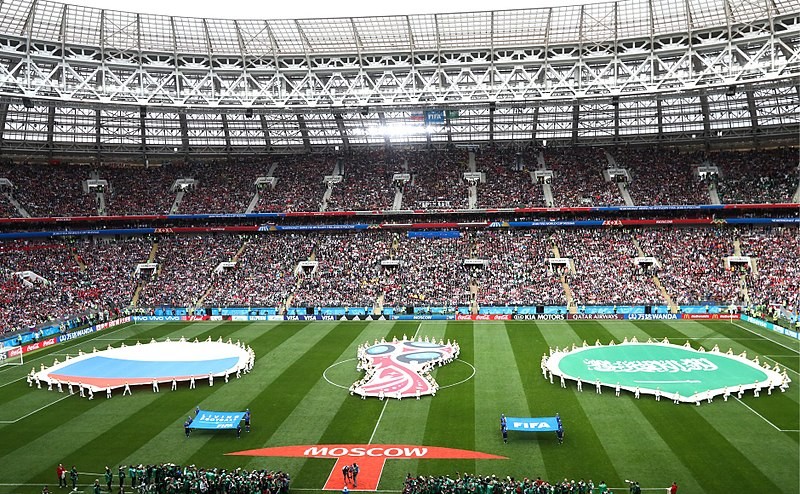
At the start of the ceremony, Russian President Vladimir Putin gave a speech, welcoming the countries of the world to Russia and calling football a uniting force. Brazilian World Cup-winning striker Ronaldo entered the stadium with a child in a Russian jersey. Pop singer Robbie Williams then sang two of his songs solo before he and Russian soprano Aida Garifullina performed a duet. Dancers dressed in the flags of the 32 competing teams appeared carrying a sign with the name of each nation. At the end of the ceremony, Ronaldo reappeared with the official match ball which had returned from the International Space Station in early June.
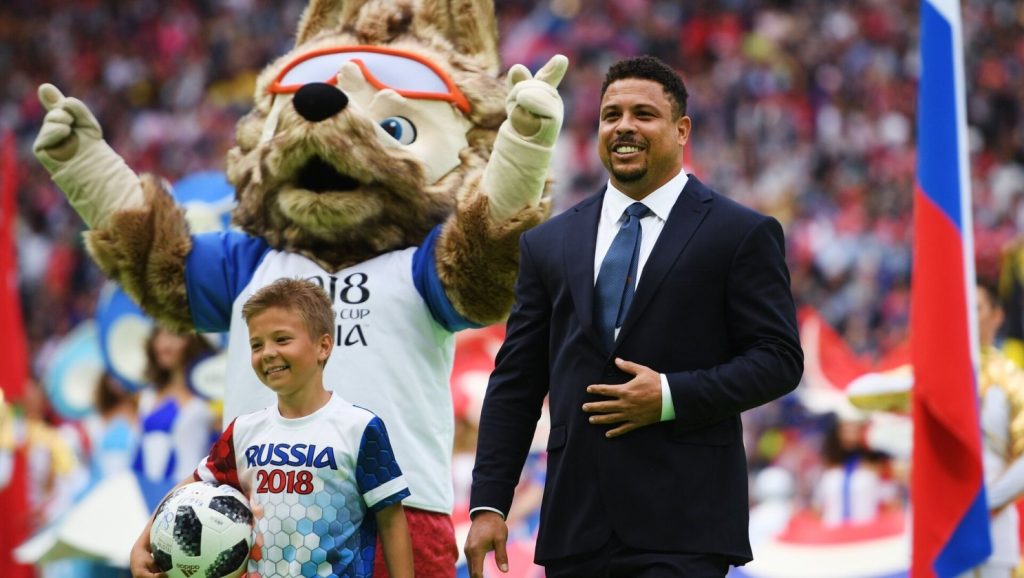
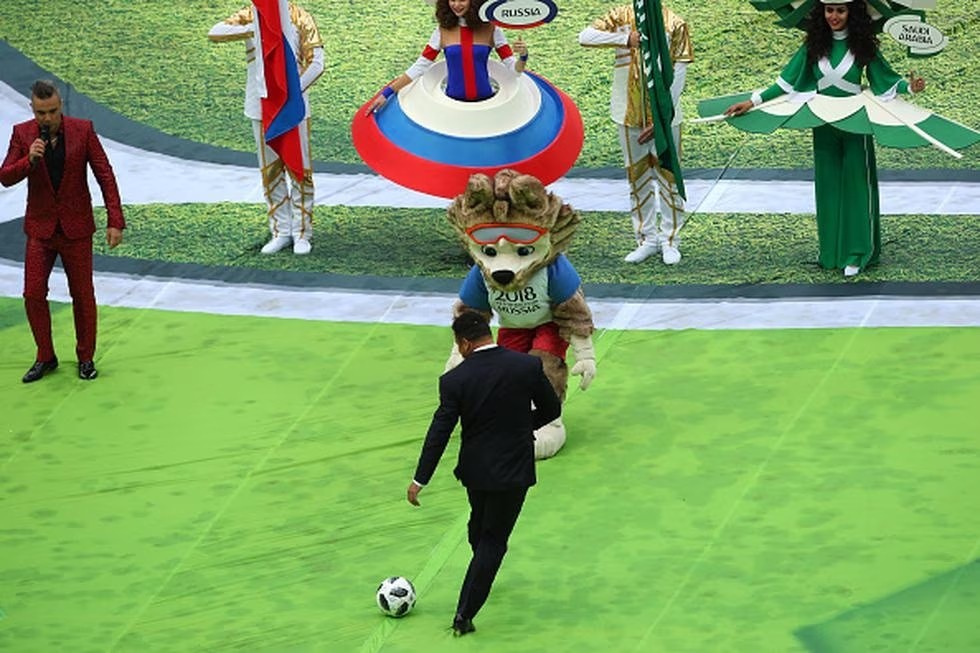
Young participants of the international children’s social program Football for Friendship from 211 countries and regions took part in the opening ceremony of the FIFA World Cup at the Luzhniki Stadium.
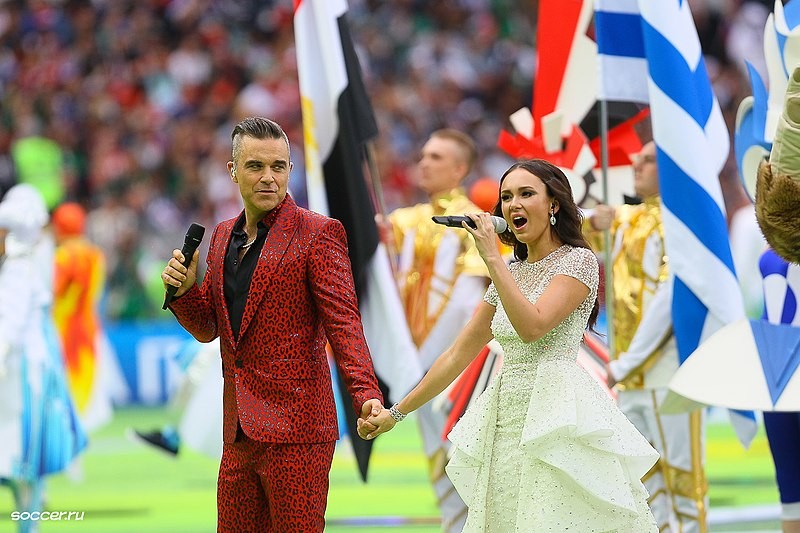
Group Stage
Competing countries were divided into eight groups of four teams (groups A to H). Teams in each group played one another in a round-robin, with the top two teams advancing to the knockout stage. Ten European teams and four South American teams progressed to the knockout stage, together with Japan and Mexico.
For the first time since 1938, Germany, the reigning champions, were eliminated in the first round. This was the third consecutive tournament in which the holders were eliminated in the first round, after Italy in 2010 and Spain in 2014. No African team progressed to the second round for the first time since 1982. The fair play criteria came into use for the first time when Japan qualified over Senegal because the team had received fewer yellow cards. Only one match, France versus Denmark, was goalless. Until then there were a record 36 straight games in which at least one goal was scored. All times listed below are local time.
In the knockout stages, if a match was level at the end of normal playing time, extra time was played (two periods of 15 minutes each) and followed, if necessary, by a penalty shoot-out to determine the winners. If a match went into extra time, each team was allowed to make a fourth substitution, the first time this had been allowed in a FIFA World Cup tournament. Below is the bracket for the knockout round of the tournament, teams in bold denote match winners.
Semi-Final
France triumphed over Belgium with a 1-0 victory, while Croatia secured a 2-1 win over England.
Third-Place
Belgium defeated England 2-0.
Final
The 2018 FIFA World Cup final was the final match of the 2018 World Cup, the 21st edition of FIFA’s competition for national football teams. The match was played at the Luzhniki Stadium in Moscow, Russia, on 15 July 2018, and was contested by France and Croatia.
The match was played through a minor thunderstorm, which produced several visible lightning strikes. The Guardian’s Barry Glendenning wrote that Croatia had the better of the first 15 minutes, noting that France was “struggling to get out of their own half” and that Croatia was “bossing them completely.” However, it was France who took the lead in the 18th minute. They won a free kick around 30 yards (27 m) from goal when Marcelo Brozović fouled Griezmann, which Griezmann took himself. He crossed the free kick into the penalty area, where it reached Mandžukić. He attempted to head clear, but the ball instead went past goalkeeper Subašić for an own goal, the first ever own goal in a World Cup final. N’Golo Kanté received the game’s first yellow card in the 28th minute for a foul on Perišić. Croatia equalized a minute later when Perišić was fouled 40 yards (37 m) from goal and Modrić’s free-kick towards the far goalpost was headed back across the goal by Šime Vrsaljko and collected by Perišić, who hit a low shot into the corner of the goal.
Three minutes after Croatia’s goal, Griezmann took a corner into the penalty area. Blaise Matuidi’s attempt to score with a header was not successful, but France’s players appealed for a penalty, claiming that Perišić had handled the ball while marking Matuidi. The video assistant referee alerted Pitana and after he reviewed the incident for several minutes, he gave a penalty to France. The penalty was taken by Griezmann in the 38th minute, and he scored with a low kick into the left-hand corner. In the 43rd minute, Lucas Hernandez was booked for a foul on Rebić and then Perišić had a shot on goal which was deflected for a corner by Paul Pogba. Shortly before half-time, Croatia had a corner which was taken by Rakitić into the penalty area, where Vida had an opportunity to score with his head, but the ball went wide of the goal. The first half finished with France leading 2–1, despite having only one shot on goal and 34% of the possession.
A Croatian attack was stopped early in the second half after several pitch invaders ran onto the field before being removed by security officers; Russian feminist rock band and protest group Pussy Riot claimed responsibility for the interruption. Three minutes into the second half, Croatia had an opportunity to score when Rebić struck the ball towards goal from the left side of the penalty area following a pass by Rakitić. French goalkeeper Hugo Lloris made a one-handed save from his shot, sending the ball behind for a corner. Glendenning said that Croatia had begun the second half as they began the first, “in a state of total dominance”. France had an opportunity in the 52nd minute when Mbappé received the ball from Pogba and ran down the left-hand side. He ran past Vida and shot toward the goal, but Subašić was able to claim the ball. France made a substitution in the 55th minute when Steven Nzonzi replaced Kanté. They then increased their lead in the 59th minute, when Pogba found Mbappé again, on the right wing, with a pass from his own half. Mbappé passed to Griezmann, who then sent the ball back to Pogba who was outside the penalty area. Pogba took a shot at goal which rebounded back to him off a defender, before he sent a second shot into the Croatian goal with Subašić unable to reach it.
France had a chance to extend their lead in the 63rd minute when Olivier Giroud hit the ball with a bicycle kick towards Griezmann, who was not marked in front of the goal, but Brozović was able to gain possession before the ball reached Griezmann. Two minutes later, they did score again when Mbappé hit a shot from 25 yards (23 m) which went past Vida and Subašić, low into the Croatian goal.
Mbappé became only the second teenager to score in a World Cup final, the first being Pelé when he scored twice in 1958. Croatia scored their second goal in the 69th minute from a back-pass that Lloris failed to dribble away from Mandžukić, who poked the loose ball into the unguarded net with his right leg. Despite late pressure by Croatia, the match finished as a 4–2 victory for France, the highest-scoring World Cup final since 1966 and the first World Cup final since 2002 to be decided without extra time.
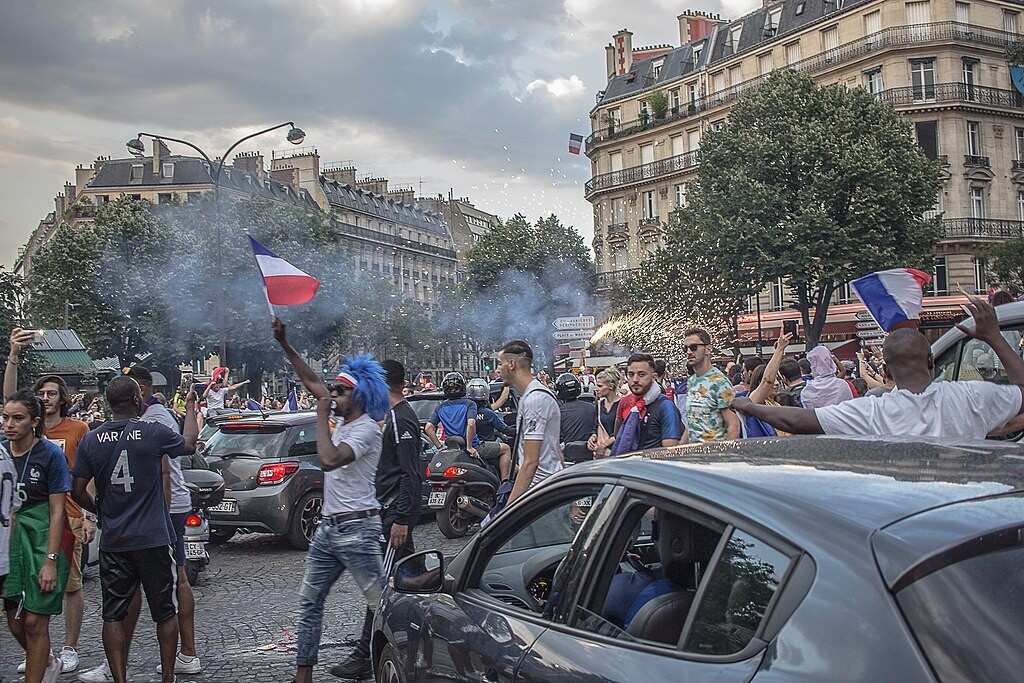
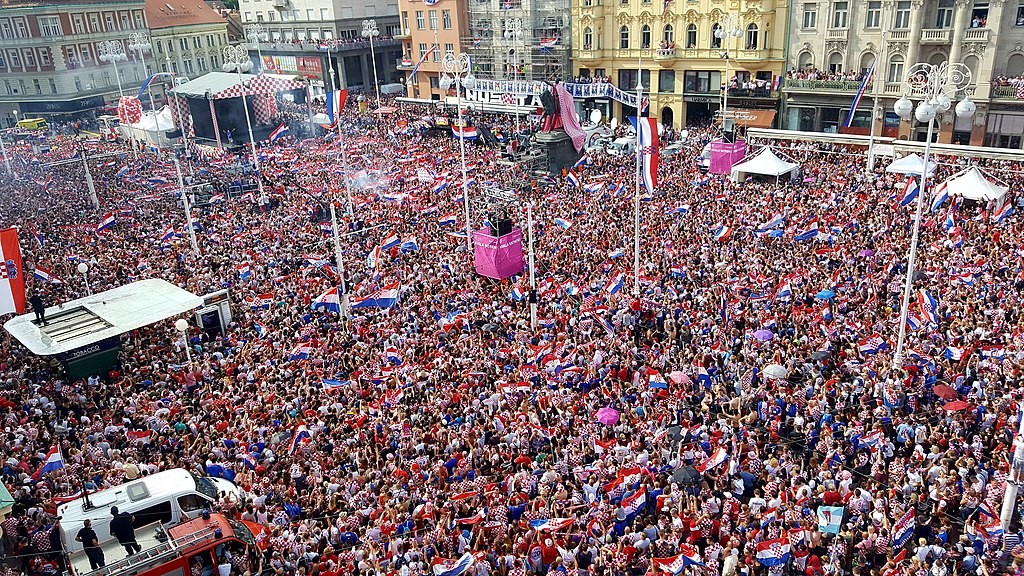
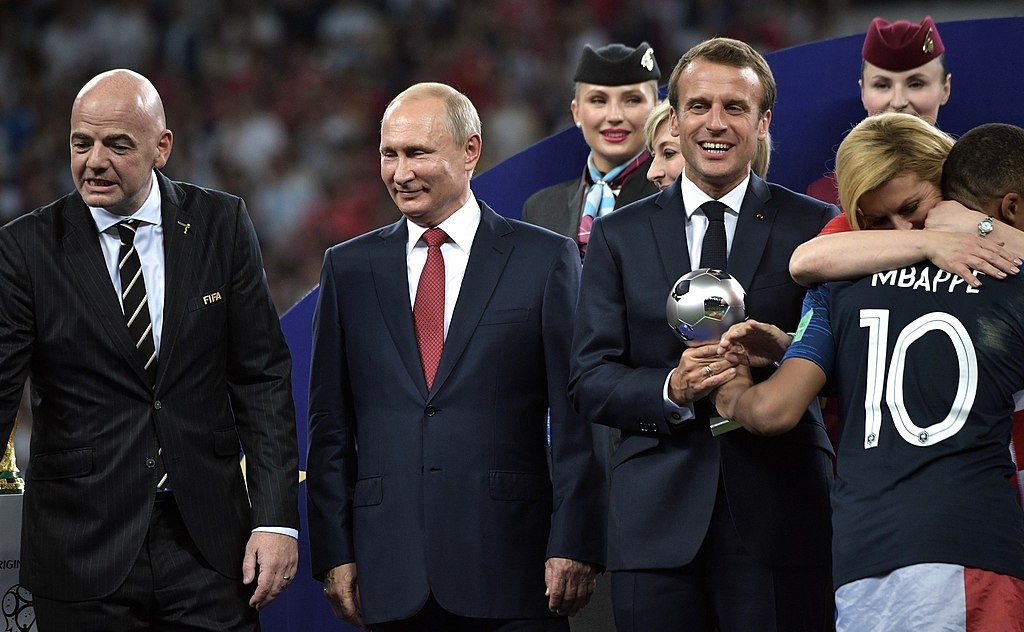
France became the sixth country to win the World Cup more than once with their win. Deschamps became the third person to have won the World Cup as both a player and manager, after Mário Zagallo and Franz Beckenbauer. The final was the highest scoring since 1966, and the highest score in regular time since 1958. The medals were presented on the pitch to both teams by presidents Putin, Macron, and Grabar-Kitarović amid a heavy rainstorm. FIFA president Gianni Infantino handed the trophy to French captain Lloris.
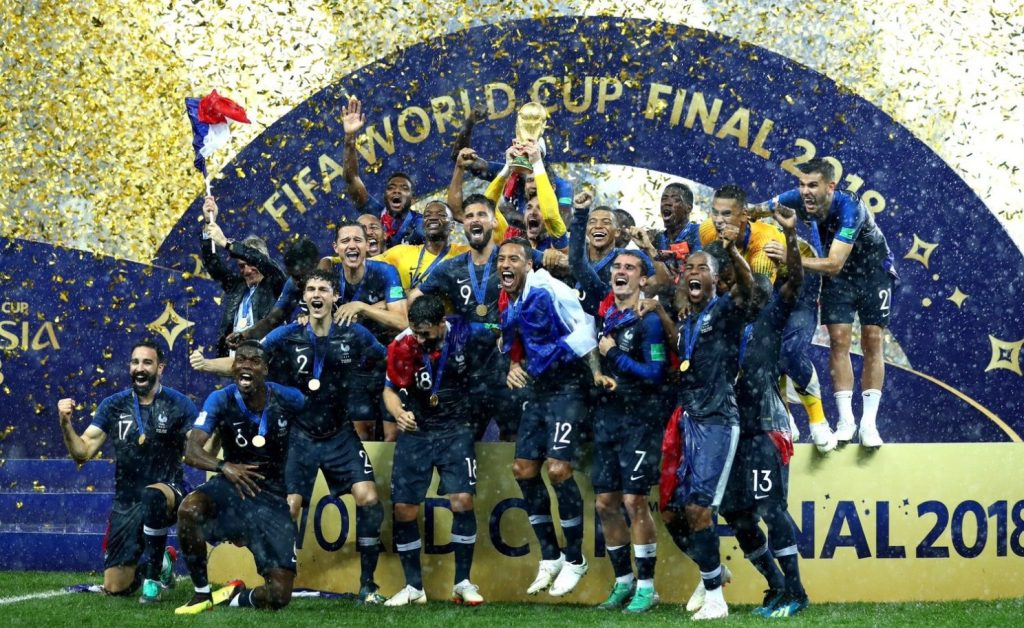
Large crowds, including 90,000 people at the Eiffel Tower fan zone and an estimated million on the Champs-Élysées, celebrated the victory in Paris. The celebrations were marred by instances of rioting that were broken up by police, as well as the deaths of at least two people during celebrations elsewhere in the country, one man died after diving into a shallow canal and another died after crashing his car into a tree, RATP, the operator of the Paris Métro system, temporarily renamed several stations in honor of the team and its World Cup victory.
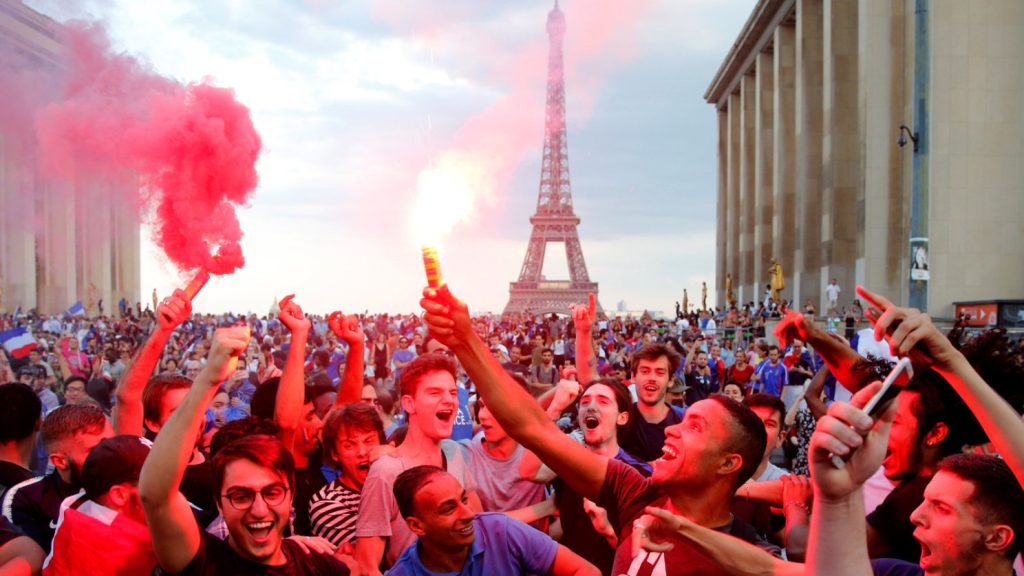
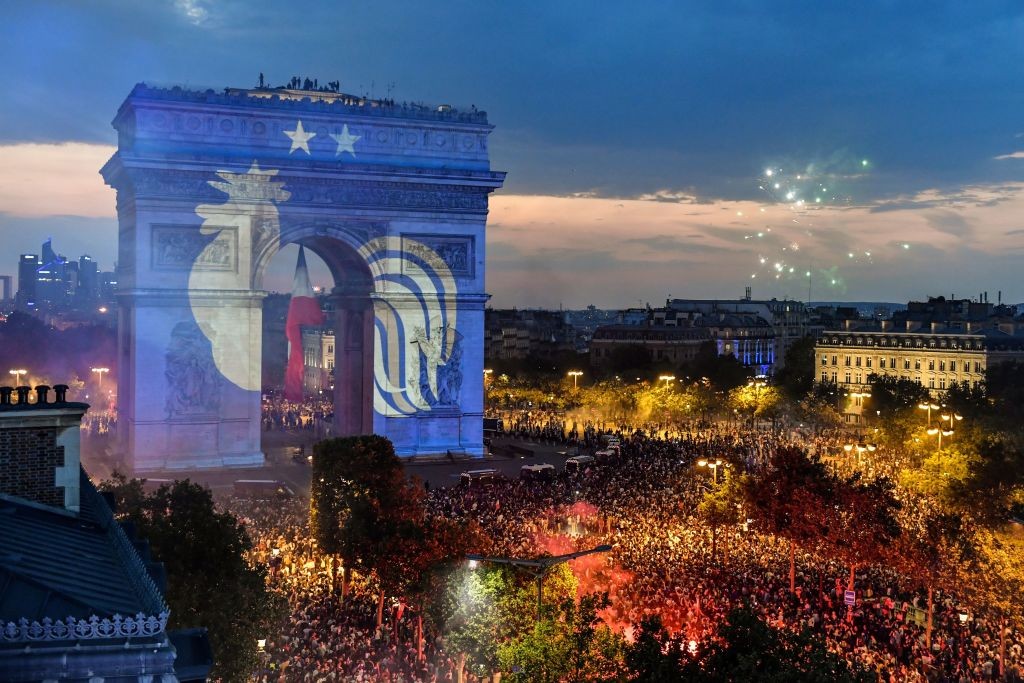
On 16 July, more than 550,000 fans welcomed the Croatian team home in the capital city of Zagreb, in the single largest public gathering in Croatia’s history, where a six-hour-long bus tour brought them from Zagreb Airport to Ban Jelačić Square. In the following days, players were all welcomed individually in their hometowns as well.
